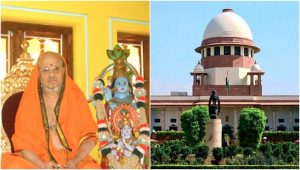The Case Of Kesavananda Bharati v State Of Kerala:

Exactly forty nine ago, on April 24, 1973, Chief Justice Sikri and 12 judges of the Supreme Court assembled to deliver the most important judgment in its history.
- The case of Kesavananda Bharati v State of Kerala had been heard for 68 days, the arguments commencing on October 31, 1972, and ending on March 23, 1973.
- By a 7-6 verdict, a 13-judge Constitution Bench ruled that the ‘basic structure’ of the Constitution is inviolable, and could not be amended by Parliament.
- The basic structure doctrine has since been regarded as a tenet of Indian constitutional law.
- In the early 1970s, the government of then Prime Minister Indira Gandhi had enacted major amendments to the Constitution (the 24th, 25th, 26th and 29th) to get over the judgments of the Supreme Court in RC Cooper (1970), Madhavrao Scindia (1970) and the earlier mentioned Golaknath.
- In RC Cooper, the court had struck down Indira Gandhi’s bank nationalisation policy, and in Madhavrao Scindia it had annulled the abolition of privy purses of former rulers.
- All the four amendments, as well as the Golaknath judgment, came under challenge in the Kesavananda Bharati case– where relief was sought by the religious figure Swami Kesavananda Bharati against the Kerala government vis-à-vis two state land reform laws.
- The Constitutional Bench ruled by a 7-6 verdict that Parliament should be restrained from altering the ‘basic structure’ of the Constitution.
- The court held that under Article 368, which provides Parliament amending powers, something must remain of the original Constitution that the new amendment would change.
- The court did not define the ‘basic structure’, and only listed a few principles — federalism, secularism, democracy — as being its part. Since then, the court has been adding new features to this concept.
- The ‘basic structure’ doctrine has since been interpreted to include the supremacy of the Constitution, the rule of law, Independence of the judiciary, doctrine of separation of powers, federalism, secularism, sovereign democratic republic, the parliamentary system of government, the principle of free and fair elections, welfare state, etc.
- Critics of the doctrine have called it undemocratic, since unelected judges can strike down a constitutional amendment.
- At the same time, its proponents have hailed the concept as a safety valve against majoritarianism and authoritarianism.




